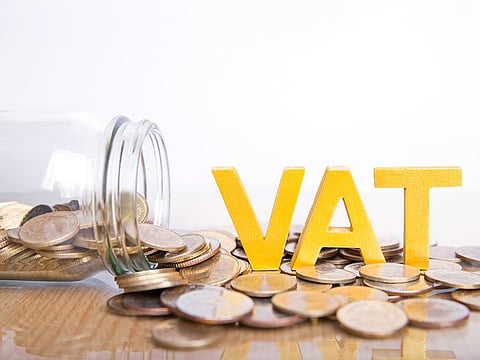Gulf states need to close out VAT rate gaps for greater economic good
For those Gulf states yet to have a VAT, it is time for a serious rethink

The economic policies on-boarded by the Gulf states have varied in the last three years, including those on foreign trade and taxes, especially on the VAT. The text of the original unified VAT agreement signed by all GCC countries stipulated implementing a unified tax rate of 3 per cent.
However, the period between approving the agreement and its implementation witnessed some far-reaching changes to the economic landscape and that contributed to raising the tax to 5 per cent in four countries in relatively close intervals.
The tax rate then was raised to 10 per cent in one GCC country and to 15 per cent in another. The 5 per cent rate remained in two countries, while two Gulf states refrained from implementing the tax for their own reasons.
The need to implement a fair VAT rate is a necessity, despite inflation ravaging all economies without exception. In the Gulf, the continuous rise in oil prices has led to a resource cushion, and since VAT in most countries is subject to periodic review, these countries enjoy some flexibility as to whether the need is to reduce or increase the rate.
The main point here lies in the discrepancy between economic policies. Take VAT as an example, especially since oil prices on which the GCC’s annual budgets depend are unstable and should witness more fluctuations in the coming years. This suggests the need to bring economic policies closer in alignment to strengthen the GCC’s collective financial condition and reinforce their negotiations with countries and groups as a single market.
Cut out the VAT difference
This means what is required first is to set a margin for the disparity of VAT between the GCC countries, as the current differential is very high. In the EU countries, there is a disparity in VAT rates, but it is a small and acceptable margin and has no significant effects on the economic policies of the bloc.
Within this approach, the Gulf countries that have not yet implemented the VAT regime must join the rest in doing so. In a recent survey on retail prices in the GCC, a major conclusion was reached, which is that retail prices, including auto parts, are 20-25 per cent higher in countries that do not apply VAT, compared to countries that apply it. This applies to other commodities too, while there are also goods whose prices are equal in all GCC countries. Certainly, there are categories that are cheaper in countries that have not applied VAT.
Pocketing the benefits
It simply means that wholesalers and retailers in countries that do not have a VAT have been very intelligent in dealing with the absence by raising prices to levels in the countries that applied it. In other words, VAT has maximized the private sector’s profits, instead of going into the state’s treasury.
This is something that must be reconsidered, especially since it delays financial reforms that are necessary for the economic future of these countries. It also leads the public treasury to lose billions that would contribute to reducing budget deficits in the future and increasing government investments necessary to establish more development projects and create jobs.
Those who oppose VAT in countries that have not implemented it yet, including some legislative institutions, should review their positions for a better economic future for their countries.
Sign up for the Daily Briefing
Get the latest news and updates straight to your inbox



